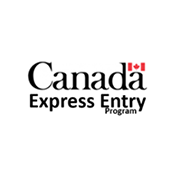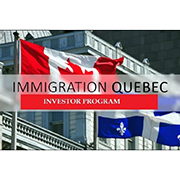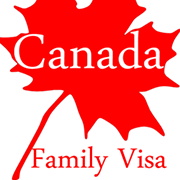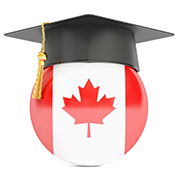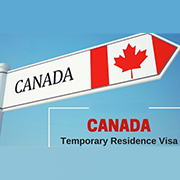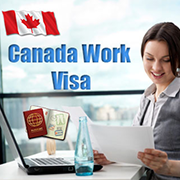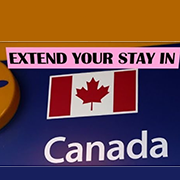SERVICES
EXPRESS ENTRY
Express Entry is an online immigration application system that allows people to submit a profile to be considered as a skilled immigrant in Canada. Candidates with the highest rankings are invited to apply for permanent residency. The eligibility within this ranking system is determined by some criteria such as age, language skills, education, work experience and so on. Those are the economic immigration programs:
- Federal Skilled Worker Class (FSWC)
This program has minimum requirements for:
- Skilled work experience
- Language Ability
- Education
You must meet all the minimum requirements to be considered as eligible. If you meet all the minimum requirements, the application will be then assessed based on: age, education, work experience, whether the candidate has a valid job offer, English and/or French language skills.
- Federal Skilled Trades Class (FSTC)
To be eligible to apply you must demonstrate:
- Minimum 2 years of work experience in an eligible skilled trade (in the last five years before applying),
- Minimum language levels in English or French
- Offer of employment (no less than one year) or a qualification certificate in a particular skilled trade issued by province or territory
The province of Quebec selects its own skilled workers through a unique immigration system. If you apply for Quebec Federal Skilled Trades Class, please ask for more information via email info@climmigration.com or call +1-514-812-7510.
- Canadian Experience Class (CEC)
Minimum requirements for this program as follows:
- Minimum language levels
- Canadian Language Benchmark 7 for NOC 0 or A jobs or
- Canadian Language Benchmark 5 for NOC B jobs
- At least 1 year of skilled work experience in Canada (in the last 3 years before you apply). The work experience must be:
- Full-time or
- An equal amount in part-time
According to the Canadian National Occupational Classification, skilled work experience means:
- Managerial jobs (skill level 0)
- Professional jobs (skill type A)
- Technical jobs and skilled trades (skill type B)
Self-employment and work experience gained while you were a full-time student (such as a co-op work term) does not count under this program.
- There is no education requirement for the Canadian Experience Class. However, if you want to improve your rank in the Express Entry pool, you must show your education level (either foreign education, or Canadian degree, diploma or certificate) to get extra points. If you have a foreign education, you must have an Educational Credential Assessment report from an approved agency showing that your education is equal to a completed certificate, diploma or degree from a Canadian secondary (high school) or post-secondary school.
- Provincial Nominees and Express Entry
- If a province or territory nominates you through an Express Entry stream, it will be listed on your nomination certificate. You must show in your Express Entry profile that you have a nomination. Minimum criteria for eligibility might change depending on the province. Please ask for more information via email info@climmigration.com or call +1-514-812-7510.
ENTREPRENEURS AND INVESTORS
The Quebec Immigrant Investor Program
The Quebec government will receive up to 1900 new applicants under this program, during the period of 10th of September, 2018 – 31th of 2019. 1235 applications of them are allocated for China, Macau/Hong Kong and 665 applications for the rest of the world.
The minimum criteria in this program as follows:
- Minimum 2 years of management experience within the 5 years before you apply.
- The company does not necessarily have to be profitable. The company must have at least 2 full-time employees (excluding the applicant).
- The applicant might be retired at any time of the application process as long as he/she can demonstrate recent 2 years of management experience within the five past years.
- You must illustrate supervision, planning and control of financial resources under applicant`s authority.
- You must show a minimum of CAD $2,000,000 net worth legally acquired. Assets such as stocks, shares, bank accounts, pension funds and property can be included.
- The investment of CAD $1.2 million is guaranteed by the Quebec government and will be returned in full after 5 years.
OWNER OPERATOR
It is a 2-Staged Program that allows foreign investors to start a business in Canada. It starts with a temporary work permit under the federal Owner-Operator rules.
The business can be:
- A new start-up company in Canada
Or
- Ownership (50.1%) of existing business in Canada (either pending or purchase)
There is no minimum wait to apply for Permanent Residency. During the first year of working in Canada the foreign worker may apply for it. If they qualify for either Express Entry or Provincial Nomination Program.
FAMILY SPONSORSHIP
Your relatives can live, study and work in Canada if they become permanent residents of Canada. You can sponsor certain relatives to come to Canada if you’re at least 18 years old and a:
- Canadian citizen or
- person registered in Canada as an Indian under the Canadian Indian Act or
- permanent resident of Canada
Who can you sponsor?
Spouse, parents and grand-parents sponsorship categories privileged by the government.
You can sponsor an orphaned brother, sister, nephew, niece or grandchild only if they meet all of these conditions:
- they’re related to you by blood or adoption
- both their mother and father passed away
- they’re under 18 years of age
- they’re single (not married or in a common-law or conjugal relationship)
You can’t sponsor your brother, sister, nephew, niece or grandchild if:
- one of their parents is still alive
- no one knows where their parents are
- their parents abandoned them
- someone else other than their parents is taking care of them while one or both their parents are alive
- their parent is in jail or otherwise detained
Other relative
You may sponsor one relative, related by blood or adoption, of any age, if you meet all of these conditions:
- you (the person who wants to sponsor your relative) don't have a living relative you could sponsor instead, such as a:
- spouse
- common-law partner
- conjugal partner
- son or daughter
- parent
- grandparent
- orphaned brother or sister
- orphaned nephew or niece
- orphaned grandchild
- you (the potential sponsor) don’t have any relatives (aunt or uncle or any of the relatives listed above), who is a:
- Canadian citizen
- permanent resident
- registered Indian under the Indian Act
If the relative you want to sponsor has a spouse, partner, or dependent children who will come with them to Canada, you must include them on the same sponsorship application.
STUDY IN CANADA
Study in Canada
Canada is one of the popular destinations for those seeking less expensive alternative to study as an international student.
Here are the steps that you need to follow to obtain a Canadian degree, diploma or certificate.
Step 1: Find a Canadian school that you would like to attend and a study program that matches your goals and ambitions.
Step 2: Get English exam (TOEFL, IELTS, CAEL) score ready
Step 3: Meet minimum requirements of the Canadian schools for acceptance
Step 4: Apply to study permit
It is also possible to work while studying which is one of the best part of being an international student in Canada. Moreover, one of the major advantages of making the decision to study in Canada is that graduates have access to a Post-Graduation Work Permit on completion of their studies in Canada. Post-Graduation Work Permits allow certain individuals who have studied in Canada to stay and work under an open work permit for up to three years, allowing them to enter the Canadian workforce and gain valuable Canadian work experience that may help them to immigrate permanently.
VISIT CANADA
Do I need a visa to visit Canada?
Most travellers need a visa or an Electronic Travel Authorization (eTA) to fly to, or transit through, a Canadian airport.
What you need depends on:
- the type of travel document you will travel with;
- the country that issued your travel document;
- your nationality; and
- how you will travel to Canada.
If you do not have the proper documents, such as an eTA or visa, you may be delayed or prevented from boarding your flight to Canada.
In most cases, you will need to meet some basic requirements, such as:
- have a valid travel document, such as a passport,
- be in good health,
- have no criminal or immigration-related convictions,
- convince an immigration officer that you have ties—such as a job, home, financial assets or family—that will take you back to your home country,
- convince an immigration officer that you will leave Canada at the end of your visit, and
- have enough money for your stay. (The amount of money you will need can vary. It depends on things such as how long you will stay, and whether you will stay in a hotel, or with friends or relatives.)
You may also need:
- a medical exam and
- a letter of invitation from someone who lives in Canada.
THE PARENT AND GRAND PARENT SUPERVISA
Who can apply?
To be eligible for a super visa, you must:
- be the parent or grandparent of a Canadian citizen or a permanent resident of Canada
- have a signed letter from your child or grandchild who invites you to Canada that includes:
- a promise of financial support for the length of your visit
- the list and number of people in the household of this person
- a copy of this person’s Canadian citizenship or permanent resident document
- have medical insurance from a Canadian insurance company that is:
- valid for at least 1 year from the date of entry
- at least $100,000 coverage
- have proof that the medical insurance has been paid (quotes aren’t accepted)
You must also:
- apply for a super visa from outside Canada
- be allowed to enter Canada
- take an immigration medical exam
- meet certain other conditions
You can’t include dependants in this application.
Financial support (proof of funds):
The child or grandchild who invites you must prove that their household meets the minimum necessary income. The following documents are examples of what can be used as proof of funds:
- Notice of Assessment (NOA) or T4/T1 for the most recent tax year
- Employment Insurance stubs
- employment letter including salary and date of hiring
- pay stubs
- bank statements
Other conditions that are considered:
You must be a genuine visitor to Canada who will leave by choice at the end of your visit.
When you apply, those are also important:
- your ties to your home country
- the purpose of your visit
- your family and finances
- the overall economic and political stability of your home country
The key difference between Super Visa and Temporary Resident Visa (TRV) is that the Super Visa allows an individual to stay for up to two years on each entry into Canada, while a 10-year multiple entry visa would only have a status period for each entry of six months only.
WORKING IN CANADA
Get the right work permit for your situation
There are 2 types of work permits.
- Employer-specific work permit
An employer-specific work permit lets you work in Canada according to the conditions on your work permit, such as:
- the name of the specific employer you can work for
- how long you can work
- the location where you can work (if applicable)
Before you submit your application for an employer-specific work permit, the employer who wants to hire you must complete certain steps and give you either a copy of a Labour Market Impact Assessment (LMIA) or an offer of employment number to include in your application.
- Open work permit
An open work permit lets you work for any employer in Canada, except for one that:
- is listed as ineligible on the list of employers who have failed to comply with the conditions or
- regularly offers striptease, erotic dance, escort services or erotic massages.
There are specific requirements you need to meet depending on where you are when you apply for your work permit. But regardless of where you apply or which type of work permit you apply for, you must:
- prove to an officer that you will leave Canada when your work permit expires
- show that you have enough money to take care of yourself and your family members during your stay in Canada and to return home
- obey the law and have no record of criminal activity (we may ask you to give us a police clearance certificate),
- not be a danger to Canada’s security
- be in good health and have a medical exam, if needed
- not plan to work for an employer listed with the status “ineligible” on the list of employers who failed to comply with the conditions
- not plan to work for an employer who, on a regular basis, offers striptease, erotic dance, escort services or erotic massages, and
- give the officer any other documents they ask for to prove you can enter the country
EXTEND YOUR STAY IN CANADA
If you want to extend your stay in Canada, you should apply at the earliest 90 days, at the latest 30 days before your status expires to:
- extend your visitor, student or work status,
- change your permit type (for example, from a study permit to a work permit) or
- change your permit condition(s) (for example, if you are studying and you want to change schools, or if you are working and you want to change jobs).
INTERNATIONAL MOBILITY
The International Mobility Program lets you (the employer) hire a temporary foreign worker without a Labour Market Impact Assessment.
Open Work Permit (Internationally Mobility Program)
Under the International Mobility Program, an open work permit enables a person to work for any employer for a specified period of time. An open restricted permit may restrict the occupation or location but not the employer.
An open work permit can be issued to a foreign national only under one of the Labour Market Impact Assessment (LMIA) exemptions.
A foreign national may apply for an open work permit outside Canada, at a port of entry or after arrival to Canada, as per program requirements.
Types of open work permits
There are two types of open work permits:
- unrestricted (allowing foreign nationals to work in any occupation and location)
- restricted (restricting the occupation or the location)
Open work permits may be issued with the following:
- occupational restrictions, depending on the applicant’s medical status
- location restrictions, depending on the category (such as a bridging open work permit under the provincial nominee class)
TRANSLATION
Melek Kaniyolu, trad.a., CRIC
Please visit our website translation.
yeminlitercuman.ca/en
CONSULTATION
We advise you in all your steps after your arrival in Canada:
- Integration into the labor market, to know the sources for finding a job
- Update your profile according to market expectations
- Seek accommodation according to your budget and your expectations
- At your arrival, find a fully furnished apartment and all inclusive (electricity, heating, internet, telephone) and praise your name
- Find places to improve your level of French and / or English
- Find public or private school for your children
